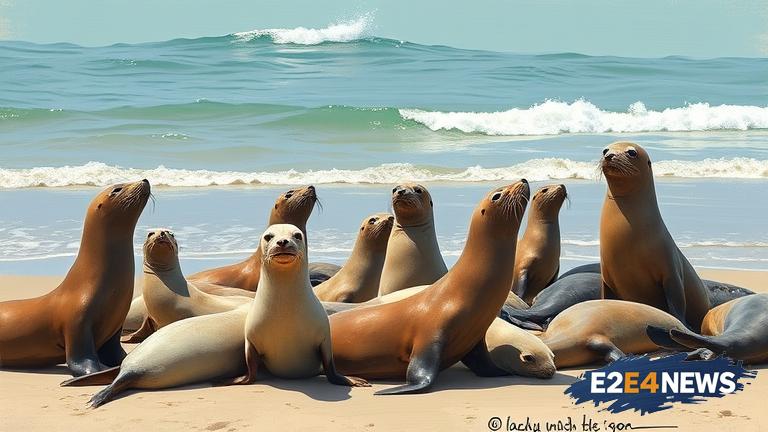In recent months, numerous instances of seals waving at people on Australian beaches have been reported, often resulting in frantic calls to local authorities and wildlife rescue services. However, experts are now urging the public to remain calm and not to jump to conclusions when encountering these seemingly friendly creatures. According to marine biologists, seals are highly social animals that are known to interact with humans in a non-aggressive manner, often waving their flippers in an attempt to communicate or initiate play. This behavior is particularly common among Australian fur seals, which are found in the coastal waters of southern Australia. Despite their appearance, these seals are not in distress and do not require assistance. In fact, calling for help in such situations can actually do more harm than good, as it can disrupt the seal’s natural behavior and cause unnecessary stress. Wildlife experts are reminding beachgoers that seals are wild animals and should be treated with respect and caution. While it may be tempting to approach or touch these creatures, it is essential to maintain a safe distance and allow them to interact with humans on their own terms. By doing so, we can help to promote a culture of coexistence and ensure the long-term conservation of these incredible animals. The Australian public is being encouraged to appreciate these interactions from a safe distance, taking care not to disturb the seals or disrupt their natural habitat. Furthermore, beachgoers are advised to be aware of their surroundings and to keep a safe distance from seals at all times, as they are still wild animals and can behave unpredictably if feeling threatened or cornered. It is also important to note that seals are protected under Australian law, and any attempts to touch, feed, or handle them can result in serious consequences. By working together, we can help to protect these amazing creatures and preserve the beauty and wonder of Australia’s coastal ecosystems. In addition to promoting a culture of respect and coexistence, wildlife experts are also highlighting the importance of education and awareness in preventing unnecessary rescue calls. By learning more about the behavior and habitat of Australian seals, beachgoers can gain a deeper appreciation for these incredible animals and take steps to minimize their impact on the environment. Ultimately, the key to successful coexistence lies in finding a balance between our desire to interact with and appreciate these creatures, while also respecting their wild nature and allowing them to thrive in their natural habitat.
